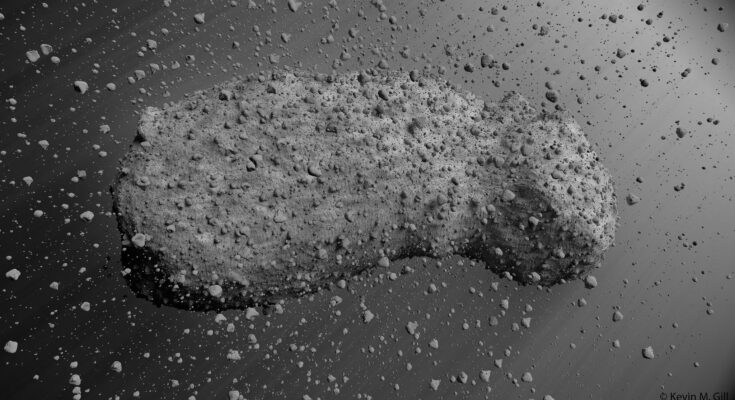A giant asteroid known as Apophis is due to pass close to Earth within the next five years. Scientists once believed it would spell doom for the planet in a catastrophic collision.
Now, however, researchers are set to analyze 99942 Apophis as it skims past our planet in an attempt to fortify our defences against other enormous meteorites.
The European Space Agency (ESA) has announced funding for the early stages of work on the Rapid Apophis Mission for Security and Safety (Ramses), which will see a spacecraft sent to the asteroid to gather information about its size, shape, mass and the way in which it moves through space.
The mission will also aim discover the makeup and internal structure of Apophis, in addition to its orbit, and find out how the rock alters as it passes within 20,000 miles of Earth, around one-tenth of the distance from the moon, on Friday April 13, 2029.
“The flyby it does with Earth is absolutely unique,” Dr Holger Krag, the head of the Esa’s space safety programme office told the Guardian, adding that no asteroid is expected to come as close for a few thousand years. “If the sky is clear, you should be able to see it with your naked eye.”
Apophis will skim by the Earth with closer proximity than the satellites used for TV broadcasting, navigation and weather forecasting. When it reaches that position, Krag said, the rock would begin to interact with our planet.
“It’s the gravity field of the Earth that will basically slightly reshape the asteroid, causing it to change its form,” he said, adding that the gravitational pull could also bring on landslides on Apophis’s surface.
It is thought that the information gained from Ramses would aid scientists in understanding the asteroid, and the potential dangers posed to us by others like it. “Our goal in planetary defence is not to do science on asteroids, but it’s to characterise them in a way that one day we can deflect them when they become dangerous,” he told the Guardian.
What would happen if the Apophis asteroid did collide with Earth?
When Apophis was discovered in 2004, it was for a while the most dangerous asteroid known to us, having been classified as holding the potential to impact with Earth in either 2029, 2036 or 2068.
If an asteroid of its size – larger than the Eiffel tower – should collide with Earth, it could blow out a chunk several kilometers wide and destroy a handful of countries with shock waves, flash heating and tremors. If it landed in the ocean, it would be possible for it to produce a tsunami that could obliterate coastlines in several countries.
However, over the years scientists’ knowledge of Apophis’ orbit increased, and it was understood that the risk of impact was much lower than originally thought. Earth is now expected to be safe in 2029 when the asteroid passes by.



